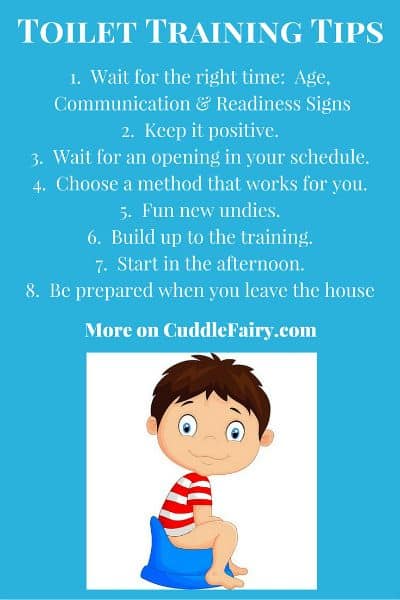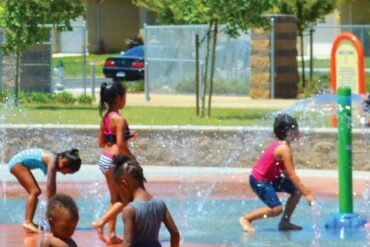Top Tips for Successful Toilet Training: A Parent’s Guide
Hey there, super parents! Are you gearing up for the big leap from diapers to the potty? Fear not, because you’ve stumbled upon the ultimate resource to make this transition as smooth as a baby’s bottom. Potty training can be a journey filled with tiny triumphs and the occasional oopsie, but with a sprinkle of patience and a dash of knowledge, you’ll be celebrating diaper-free days in no time. ? Ready to ditch the diapers? Let’s dive into some tried-and-true tips for toilet training success!
Understanding the Right Time to Start Toilet Training
First things first, let’s chat about timing. As much as we’d love a one-size-fits-all answer, the truth is, every child is unique. Most kiddos show readiness for toilet training between 18 and 24 months, but hey, no rush! Some may take a bit longer, and that’s A-OK. ? Look for signs like staying dry for longer periods, showing interest in the toilet, or disliking wet diapers. When your little one starts giving you the ‘nudge,’ it’s game on!
Setting the Stage for Potty Training Success
Preparation is key! Create a potty-friendly environment that your tot can call their own. Invest in a fun, child-sized potty or a special seat for the regular toilet. Let your little one pick it out – the more they love it, the more they’ll use it! And remember, location is everything. Keep it accessible; this isn’t a ‘Where’s Waldo?’ scenario. ?
Pro tip: Have a couple of potties around the house to avoid the last-minute mad dash. Consistency is your new BFF during potty training, so set a routine that’s easy to follow. Regular potty breaks can help your child recognize their body’s signals and build successful toilet habits.
Positive Reinforcement: Your Secret Potty Training Weapon
Children thrive on encouragement and love to be praised for their achievements, no matter how small. Celebrate each victory with a high-five, a sticker, or a happy dance. Even the tiniest of progress is worth a party in the potty world. Avoid expressing disappointment or frustration if things don’t go as planned. Remember, it’s not about perfection; it’s about progress. ?
Stickers, charts, and treats can work wonders as motivation. Just be careful not to overdo the rewards. After all, we want to teach that using the toilet is a normal part of life, not a performance art.
Dressing for Potty Training Success
Here’s a fashion tip with a twist: dress your kiddo in clothes that are easy to remove. Think elastic waists and pants without tricky buttons or snaps. When nature calls, your child needs to answer fast, and simple outfits make it more likely they’ll make it in time. ??Potty training is about independence, so let’s set them up to succeed.
Tackling Toilet Training Mishaps: Stay Cool as a Cucumber
Let’s get real—accidents are part of the deal. Slip-ups don’t mean failure; they’re learning opportunities. When the inevitable happens, keep your cool. Reassure your little one that it’s okay and remind them that next time, they’ll make it to the potty. Clean up together if they’re willing; it’s all part of the learning process!
And speaking of slip-ups, nighttime training is a whole other ballpark. Some kids take longer to stay dry through the night, and that’s totally normal. Use waterproof mattress protectors to save your sanity and laundry detergent. Your future self will thank you!
Embarking on this toilet training voyage can be a mix of giggles and groans, but with these handy dandy tips, you’re well on your way to smoother sailing. And remember, patience is not just a virtue; it’s a necessity. Tune in for more insightful strategies in our comprehensive guide, and before you know it, you’ll be waving goodbye to diapers for good. Keep up the great work, parents – your tiny tot will be a potty pro in no time! ??

Understanding Your Child’s Individual Needs
Every child is a unique individual, and recognizing their personal needs and quirks can make potty training a lot more effective. Some kiddos might be scared of the flushing sound, while others may find the bathroom too cold. Address these little nuances and you’ll ease their worries. Provide step stools for the ones who fear heights or potty seats that feel more stable. Embrace their individuality and support them through this personal journey. ?
Communication is Key: Talk About the Potty
Communication can be a game-changer when it comes to toilet training. Start potty talk early on. Explain the process in simple, cheerful terms and make it sound like the cool new skill that it is. Read books about toilet training together, and maybe even let them see family members use the toilet to demystify the process. This way, they understand that everyone does it. Plus, talking about the potty helps normalize it as part of their daily routine. ?
Healthy Habits: Diet and Potty Training
What goes in must come out, right? Now’s the time to ensure your little one’s diet is helping rather than hindering their potty training journey. Fiber-rich foods can prevent constipation, which is a common potty training hurdle. Think fruits, veggies, and whole grains. And don’t forget about hydration! Encouraging your child to drink plenty of fluids can promote regular urination, which in turn helps with bladder training. Just taper off liquid intake before bedtime to minimize nighttime accidents. ??
As your child embarks on potty mastery, these additional tips will enhance your training tactics and help you handle the curveballs with grace. Stay informed, stay positive, and most importantly, stay supportive. Toilet training is a significant milestone in your child’s life – celebrate every step, and cherish these moments of growth. Keep checking back for more wisdom-filled guidance as we continue our quest for potty proficiency. The journey to independence is paved with patience and love. Go forth and conquer the potty challenge. Good luck, you’ve got this! ??
See more great Things to Do with Kids in New Zealand here. For more information see here
Disclaimer
The articles available via our website provide general information only and we strongly urge readers to exercise caution and conduct their own thorough research and fact-checking. The information presented should not be taken as absolute truth, and, to the maximum extent permitted by law, we will not be held liable for any inaccuracies or errors in the content. It is essential for individuals to independently verify and validate the information before making any decisions or taking any actions based on the articles.




